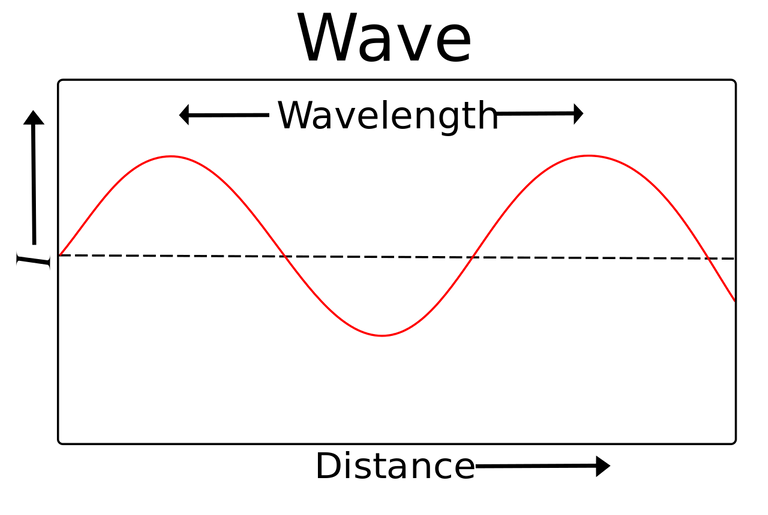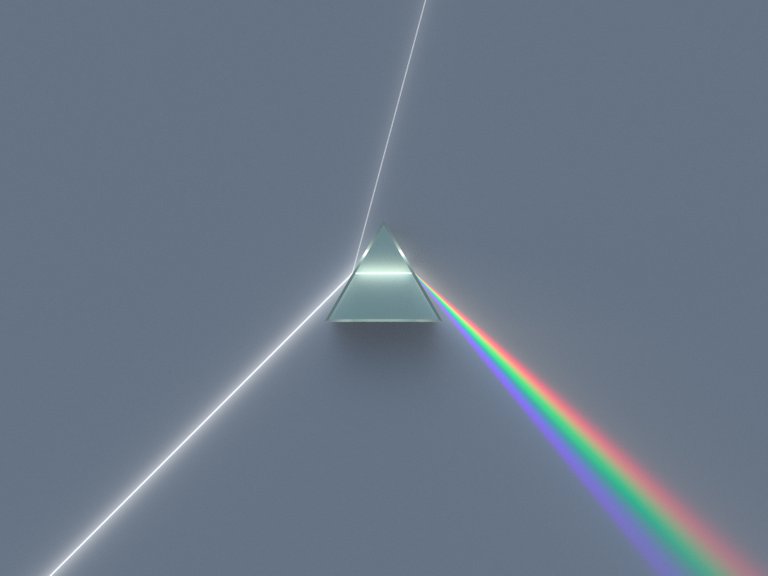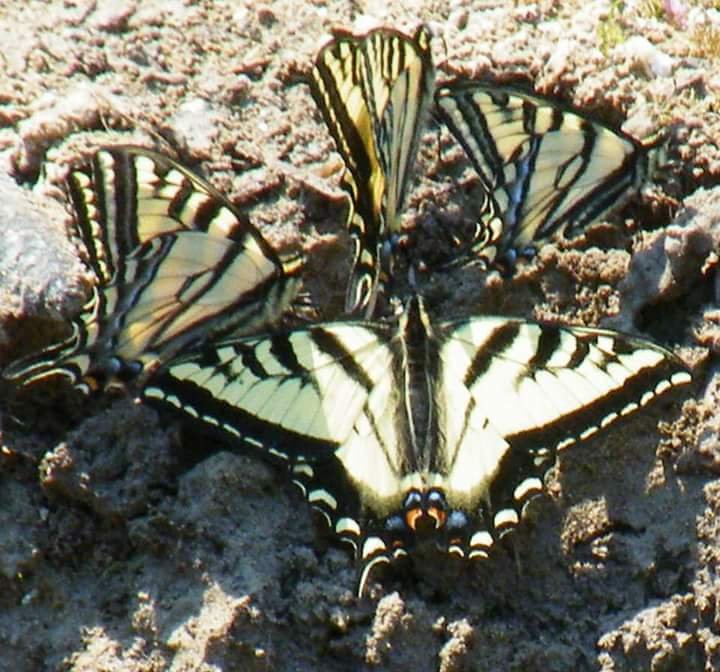Let's sit down and enjoy this colorful butterfly for a second. isn't she beautiful, so calm, and minding her own business.

[Usage under Creative Commons Credit]
But have you ever wondered why does she look blue? Why anything has colors at all? What exactly is color? What is light? to answer that, let's go small, How small? atomic small.
A visible light is an electromagnetic wave, (Technically its particle and wave at the same time, but since we are talking about colors, we are considering only the wave aspect of the light.)
All waves have a property called "Wavelength." Wavelength is the measure of the length of one complete cycle.

[Usage under Creative Commons Credit]
A particular range of the wavelengths is called spectrum. Let's have a look at the different spectrums of the electromagnetic waves.

[Usage under Creative Commons Credit]
In the picture above the highest wavelength, electromegnetic waves are the radio waves, and the gamma rays have the smallest wavelength.
Between this huge spectrum of the electromagnetic waves, the visible spectrum is the only range we can see through our naked eyes.
And when we expand the visible spectrum, we can see the range of the colors we are able to see through our eyes.

[Usage under Creative Commons Credit]
When combined all the light in the spectrum above, we get white light.
a white light is the combination of all the color range above. while in school you might have conducted an experiment involving a prism.

[Usage under Creative Commons Credit]
A Prizm refracts different spectrums of light, differently depending on the refracting index. so they end up in the different places as per their refractive index.
Reflection and Refraction
When the light bumps into a surface and bounces off and changes the direction, the process is called Reflection. And when the light travels through a varying density the light gets deflected and continues to travel into the new medium. the process is called Refraction.
When a white-light(A combination of all the colors) hits an object then depending upon the molecular structure, most light gets absorbed by the object, and certain wavelengths (Color) are bounced back. This is why the object has a certain color.
Transparent objects like water let the light through and do not absorb any light, hence we can see through them.
in short Different colors = Different wavelengths.
There's one very common color which is not available in the rainbow. can you name it? write down in the comments below.
And since you were expecting some titties, Here is the picture of a tit.
Yes, i know its a bird, but its called "Titties" you perv. Did you really think I would post a picture of the breasts? No sir. :P
Read more about Tit (bird)
References: all the images sources have been cited below the pictures.


gif Created by @foundation
Daily Fun Fact #64 -- "Morpho Butterfly gets its magnificent blue using nanoscale structures on their wings."
More Information

I love butterflies. One of my very favorite places to go was a place i call Butterfly Island. It's in a park called Rifle Mountain Park in Rifle Co. At the top of the park is a beaver damm, and the water slows down a bit causing muddy areas where the butterflies love to go. One summer there were 60 thousand yellow swallow tails everywhere! It was amazing! I keep meaning to go back there!! These are the butterflies i speak of.
[FB_IMG_1516270202042.jpg( )
)
Wow, that's awesome, must have been beautiful.
Yeah... boobs and science remind me of this one teacher I used to have... Oh, umm... Great post!
Thanks for taking the time :)
I came here for boobs, and I left with an education! Thanks!
you did saw some tit though :P